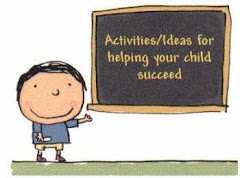May 2, 2010
(Andrew Harnik/The Examiner)
George Parker became president of the Washington Teachers' Union in 2005, as D.C. Public Schools pushed modest reforms that attracted minimal attention outside of the Beltway. Five years later, the city is at the center of the school reform universe, with Parker in the role of defending teachers by demanding more money and more support amid the tumult of major changes to schools and classrooms. Parker, 59, sat down with the Washington Examiner to share thoughts on the faith and experiences that have inspired his fight.
(Andrew Harnik/The Examiner)
George Parker became president of the Washington Teachers' Union in 2005, as D.C. Public Schools pushed modest reforms that attracted minimal attention outside of the Beltway. Five years later, the city is at the center of the school reform universe, with Parker in the role of defending teachers by demanding more money and more support amid the tumult of major changes to schools and classrooms. Parker, 59, sat down with the Washington Examiner to share thoughts on the faith and experiences that have inspired his fight.
Do you consider yourself to be of a specific faith?
I'm a Christian, I believe in God. I believe that it's important to know that there's something bigger than yourself to help keep you grounded, and to give you faith when hope is low, and when you need to believe in something.
Did anyone or any event especially influence your faith?
I grew up in North Carolina, in the country, on a farm. My mother was very, very strong in her faith, and she raised us that way. When I went away to college, I got into a different arena, you could say. But later on, one of the most dramatic things that moved me closer to God was my mother's death, in 2000. I was there in the hospital when she passed, and her last conversation with me was about God, and the strength of my faith, and not just talking the faith, but living it. That experience moved me to a different level. My mother's death was the one thing in life I didn't want to see happen, but I couldn't stop it. You realize in those situations that you don't control anything. That realization, and that conversation, was very, very important. I've been a good person in my life, but in that moment there was growth, and the realization that I had to commit more. And I have.
How did a childhood spent in the segregated schools of the South affect your approach to teaching today?
When I grew up, very often we were given the books that the white kids had already used. We got their old books. But the key was that it didn't matter where you start out -- you can still overcome, and move forward and be successful. That helped me to form the philosophy that education makes all the difference. No matter where you start, it's about where you're going.
We had teachers, too, who were not going to let us fail. We had teachers who understood, at that point, that we were going to have to be twice as good in order to succeed, and they used tough love to get us there. I don't support putting hands on a child, but teachers don't have the same kind of authority in classrooms today. Today, the teacher teaches and disciplinary authority rests largely in the hands of the principal. That makes teaching much tougher.
You spent many years as a math teacher. What's harder, managing a class full of kids or managing a city full of teachers?
[Laughter] Probably, I'd say that working with the union, and the duties of this particular job are harder than what I did with kids. One thing about children is that they're very honest. And when you're dealing with adults, sometimes people are not honest. You often have to work through all of the "yuck," the personal agendas, to get to the real core. With children, what you see is what you get. They'll sometimes tell you more than you want to hear, but at least they're honest about it.
At your core, what is one of your defining beliefs?
At my core, I believe that what you do for others is more important than what you do for yourself. That's the guiding principle. And I believe that you reap what you sow. Sow good seeds, sooner or later, they will bear fruit. Sow bad seeds, sooner or later, they come up badly.
-Leah Fabel











No comments:
Post a Comment